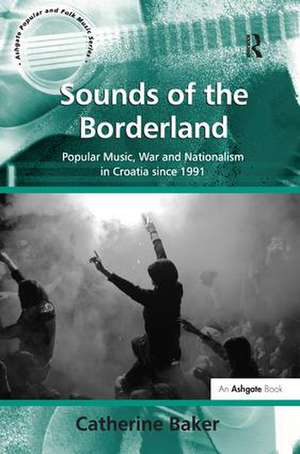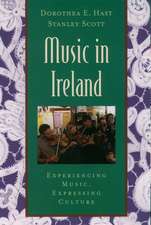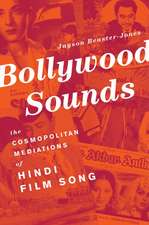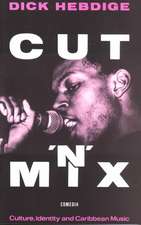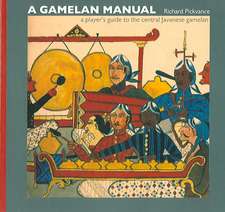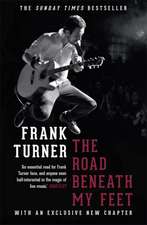Sounds of the Borderland: Popular Music, War and Nationalism in Croatia since 1991
Autor Catherine Bakeren Limba Engleză Hardback – 28 iul 2010
| Toate formatele și edițiile | Preț | Express |
|---|---|---|
| Paperback (1) | 469.34 lei 6-8 săpt. | |
| Taylor & Francis – 23 noi 2016 | 469.34 lei 6-8 săpt. | |
| Hardback (1) | 1109.18 lei 6-8 săpt. | |
| Taylor & Francis – 28 iul 2010 | 1109.18 lei 6-8 săpt. |
Preț: 1109.18 lei
Preț vechi: 1352.65 lei
-18% Nou
Puncte Express: 1664
Preț estimativ în valută:
212.24€ • 218.96$ • 177.12£
212.24€ • 218.96$ • 177.12£
Carte tipărită la comandă
Livrare economică 26 martie-09 aprilie
Preluare comenzi: 021 569.72.76
Specificații
ISBN-13: 9781409403371
ISBN-10: 1409403378
Pagini: 278
Dimensiuni: 156 x 234 x 18 mm
Greutate: 0.45 kg
Ediția:1
Editura: Taylor & Francis
Colecția Routledge
Locul publicării:Oxford, United Kingdom
ISBN-10: 1409403378
Pagini: 278
Dimensiuni: 156 x 234 x 18 mm
Greutate: 0.45 kg
Ediția:1
Editura: Taylor & Francis
Colecția Routledge
Locul publicării:Oxford, United Kingdom
Notă biografică
Catherine Baker is Lecturer in 20th Century History at the University of Hull, UK
Recenzii
Prize: Awarded the BASEES George Blazyca Prize for 2012 'An exhaustive, vividly documented account of the political utility of popular music in Croatia during and after the Homeland War... Rich in documentary details and interpretive conclusions.' Slavic Review ’Baker’s book is a significant contribution to the literature on the former Yugoslavia and its collapse.’ Europe-Asia Studies 'Sounds of the Borderland is an excellent read that skilfully demonstrates the interaction between everyday popular culture and national identity. It is without a doubt a book that future researchers in the field will value.' Slovo
Cuprins
Introduction; Part I Croatia under Tu?man, 1991–2000; Chapter 1 Music at Arms: The Presidential Narrative of the War; Chapter 2 Music for the Nation: Creating a 'Croatian' Popular Music; Part II Croatia after Tu?man (2000–2008); Chapter 3 Music in Protest: Nationalism Detached from the State; Chapter 4 Music on the Market: Pop-Folk and Cultural Boundaries; Chapter 5 Music at First Hand: Observing Three Musical Events; Part III Croatia in a Regional Context; Chapter 6 Music without Borders?: After the Disintegration of Yugoslavia; conclusion Conclusion;
Descriere
Sounds of the Borderland is the first book-length study of how popular music became a medium for political communication and contested identification during and after Croatia's war of independence from Yugoslavia. It extends existing cultural studies literature on music, politics, and the state, which has largely been grounded in Western European and North American political systems. The outbreak of war in 1991 saw almost every professional musician in Croatia take part in a wave of patriotic music-making and the powerful state television system strive to bring popular music under its control. As the political imperative shifted from securing national survival to consolidating a homogenous nation-state, the music industry responded with several strategies for creating a national popular music, producing messages about the nation and, in the ongoing debates over the origins of the folk music that inspired many songs, a way to define the nation by expressing what Croatia was not. The war on ethnic ambiguity which cut through individuals' social and creative lives played out across the airwaves, sales racks and gossip columns of a small country that imagined itself a historical and cultural borderland. Baker's book provides valuable insight into the role of music in a wartime and post-conflict society.
